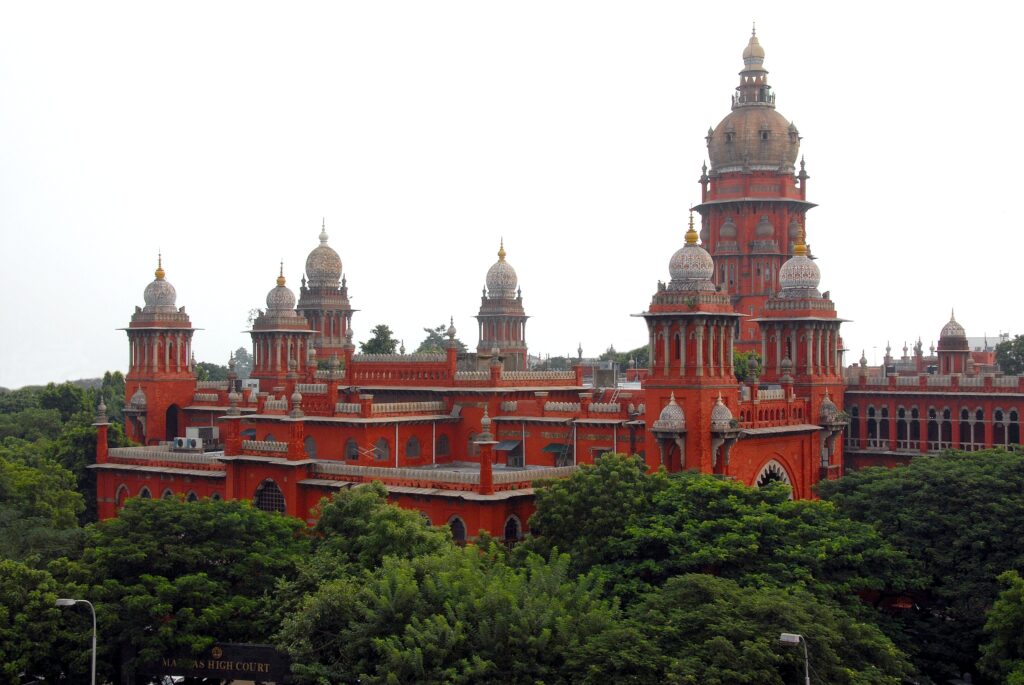
Chain Singh & Sujan Singh ….Petitioners
Versus
State & anr. …..Respondent
Date of Order:- 07.06.2023
The petition was filed in Hon’ble Madras High Court , to quash the final report for the offences under Section 63 of the Copyright Act, 1957 and Section 420 of the Indian Penal Code.
It was alleged in the final report that the petitioners were found in
possession of counterfeit Adidas/Reebok ready-made Garments, Tags, Accessories and Labels; thus, they committed the aforesaid offences.
Argument by Counsel for the Petitioners
Counsel for the petitioners, submitted that the offence under Section 63 of the Copyright Act, 1957 is not made out as the Copyright is applicable only to the works mentioned in Section 13 of the Copyright Act, 1957 and it does not apply to the Garments and other products which are mentioned in the impugned final report; and there is no complaint from any person or consumer that they have been cheated by the purchase of any of the goods sold by the petitioners, and in the absence of such an allegation, the offence under Section 420 IPC is not made out. Counsel relied upon the Judgment of Madhya Pradesh High Court in Kasim Ali vs. the State of Madhya Pradesh dated 13.06.2016 in Misc. Criminal Case No.1362 of 2015 in support of his submission that in a similar case, the Madhya Pradesh High Court had held that neither Section 63 of the Copyright Act, 1957 nor Section 420 of the Indian Penal Code, 1860 is attracted.
Argument by Additional Public Prosecutor
Additional Public Prosecutor, submitted that the mere fact that the petitioners were in possession of spurious branded items is enough to infer that the said goods were intended to deceive the public and gain wrongfully. Additional Public Prosecutor relied upon the Judgment of Delhi High Court in Sunil Kumar Gupta and another vs. State reported in 1998 (47) DRJ 84 in support of his submission that mere possession of spurious goods is sufficient to attract the offence under Section 420 IPC.
Hon’ble High Court obeservations:-
Hon’ble Court, on perusal of the impugned final report, found that the allegation against the petitioners was that they were in possession of duplicate Reebok/Adidas Bags, Caps and Belts. The said allegation would not attract the offence under Section 63 of the Copyright Act, 1957. Section 63 of the Copyright Act, 1957 reads as follows:
“63. Offence of infringement of copyright or other rights
conferred by this Act – Any person knowingly infringes or abets
the infringement of –
(a) the copyright in a work, or
(b) any other right conferred by this Act, [except the right
conferred by section 534 – A],
[shall be punishable with imprisonment for a term which shall
not be less than six months but which may extend to three years
and with fine which shall not be less than fifty thousand rupees
but which may extend to two lakh rupees:
Provided that [where the infringement has not been made
for gain in the course of trade or business] the Court may,
for adequate and special reasons to be mentioned in the
judgment, impose a sentence of imprisonment for a term of less
than six months or a fine of less than fifty thousand rupees.
Explanation – Construction of a building or other
structure which infringes or which, if completed, would infringe
the copyright in some other work shall not be an offence under
this section.”
Section 13 of the Copyrights Act, 1957 reads as follows :
Works in which copyright subsists – (1) Subject to
the provisions of this section and the other provisions of this
Act, copyright shall subsist throughout India in the following
classes of works, that is to say,- (a) original literary, dramatic, musical and artistic works,
(b) cinematograph films; and
(c) [sound recording]
Hon’ble Madras High Court findings
From the above provisions, it is clear that unless the infringement relates to original literary, dramatic, musical and artistic works, cinematograph films and sound recordings, the provisions of the Act are not applicable. In the instant case, there are no such allegations. Hence, the offence under Section 63 of the Copyright Act, 1957 is not made.
As regards the offence under Section 420 IPC, there is nothing in the impugned final report to suggest that there was any deception practised upon any person. The possession of spurious goods is certainly not a legal act. However, in the absence of the ingredients to constitute the offence of cheating, one cannot be prosecuted merely because he was in possession of spurious goods. Court said, that in order to constitute the offence of 420 IPC, there must be a deception practised on any person dishonestly or fraudulently. The impugned final report does not satisfy those necessary ingredients to attract the said offence of Section 420 IPC.
The Judgment of the Madhya Pradesh High Court in Kasim Ali vs. The State of Madhya Pradesh dated 13.06.2016 in Misc. Criminal Case No.1362 of 2015 relied upon by the learned counsel for the petitioners squarely applies to the facts of the instant case. The Court was not in agreement with the view taken by the Delhi High Court in Sunil Kumar Gupta and another vs. State reported in 1998 (47) DRJ 84 for the aforesaid reasons.
Thus the impugned final report was quashed.
Criminal Original Petition was allowed.
Read, Reviewed & Edited by
Neeraj Gogia, Advocate